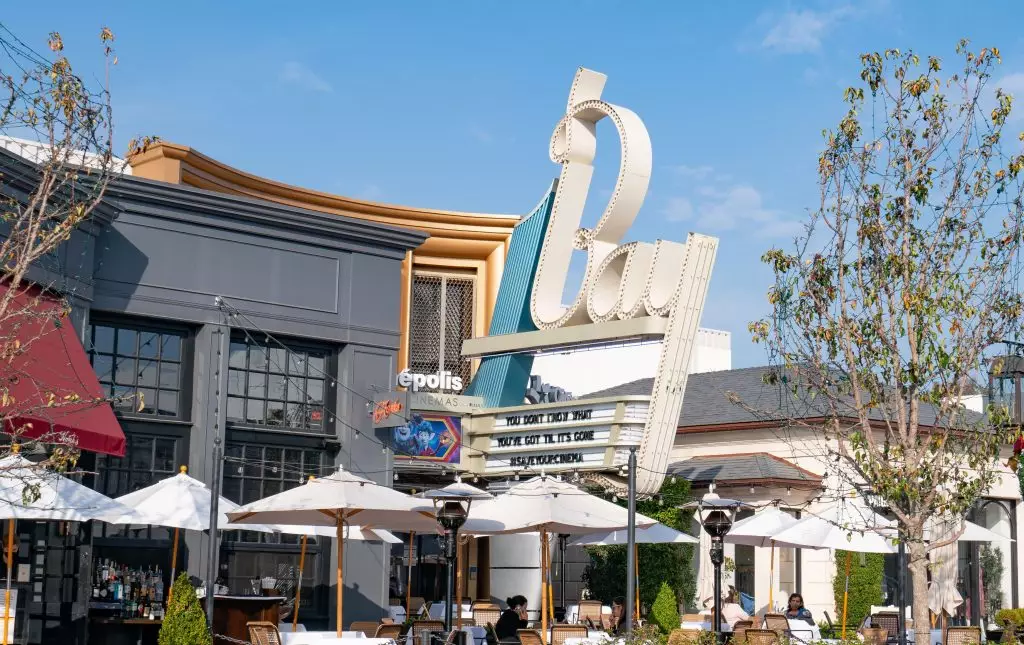Wildfires have become an all-too-frequent menace in California, disrupting entire communities and affecting numerous sectors, including the entertainment industry. The recent Pacific Palisades wildfire serves as a dramatic reminder of this threat, leading to the closure of several prominent cinemas in Los Angeles, the heart of the global box office. This article explores the ramifications of the wildfire not only on local theaters but also on community sentiment and overall moviegoing experiences.
The wildfire wreaked havoc, causing closures of around ten cinemas in and around Los Angeles. Among the affected venues are well-known locations such as the AMC Americana in Glendale, AMC Universal City Walk, and Regal Sherman Oaks, to name a few. The implications of these closures extend beyond mere inconvenience; they impact ticket sales, disrupt scheduled film releases, and alter the local atmosphere for film enthusiasts. Patrons eager to experience the latest film releases find themselves either rerouting their plans or postponing their outings altogether, creating a ripple effect that could hinder Los Angeles’ vibrant cinema culture.
In a city that grossed over $681 million in box office revenue just last year and contributed to 8% of the total domestic market, the economic ramifications of such closures cannot be overlooked. Fans of cinema who depend on these venues for both entertainment and socialization now face an uncertain weekend ahead, as reopening dates remain undetermined.
The Bay Theater: A Symbol of Community Resilience
One of the most poignant aspects of this situation is the fate of the historic Bay Theater, owned by local real estate magnate and mayoral candidate Rick Caruso. Situated at the core of the fire’s path, the Bay Theater was forced to close its doors, with its website indicating that operations are halted due to the ongoing crisis. While current reports suggest the theater has been spared from direct fire damage, it remains indirectly impacted by the surrounding chaos and the extensive evacuation efforts in the area.
Caruso has publicly commented on the severity of the fires, revealing that the shopping center housing the Bay Theater sustained damage in a section that became “fully engulfed” in flames. This situation underscores a significant point: the way a single event can amplify emotional and infrastructural strains on a community. The theater represents more than just a venue for films; it serves as a communal gathering space, a cultural staple whose very existence is threatened by the scourge of wildfires.
Staying Open: Business as (Un)Usual
Amidst the turmoil, some theaters are still managing to operate. AMC’s Burbank location, noted for its robust ticket sales, remains open for business, alongside other locations such as AMC’s The Grove and AMC Century City 15. Their ability to continue operations offers a semblance of normalcy in an otherwise disrupted environment. With all eyes on these venues, there is an intrinsic pressure for them to perform well, and they are now positioned to capture audiences who may flock to available movie screens amid the restrictions imposed elsewhere due to fire threats.
However, the specter of fear and uncertainty looms large over the industry. The ongoing evacuation orders and the advisories urging individuals to stay off the roads diminish the enthusiasm for going out to the movies. Moviegoers’ reluctance impacts ticket sales, and this could lead to a decline in overall profitability in a city where the movie industry thrives.
As local cinemas face challenges, the broader entertainment landscape also pivots. Many anticipated industry events, including premieres for major films, have been either canceled or postponed due to safety concerns. The relocation of the Critics Choice Awards is a further testament to the disruptive nature of these wildfires; events originally scheduled to celebrate cinematic achievements will segue into uncertainty.
Upcoming releases also face an uphill battle, as cinemas work to recapture the attention and trust of audiences skittish about venturing out. With new films set to release such as Lionsgate’s Den of Thieves 2: Pantera, Paramount’s Better Man, and others, the struggle for theaters to reclaim their footing in a disrupted market is critical.
While the Pacific Palisades wildfire directly affects physical locations, it also reverberates through the community and the broader cinematic landscape. As Los Angeles rebounds from the immediate aftermath of these events, resilience will be key. The rebuilding of trust and experiences within local cinemas will dictate the future of moviegoing in a city synonymous with the film industry. Ultimately, it serves as a poignant reminder of the delicate relationship between cinema culture and the environments that house it. As communities recover, the hope remains that the flickering light of the silver screen will shine brighter than ever.

